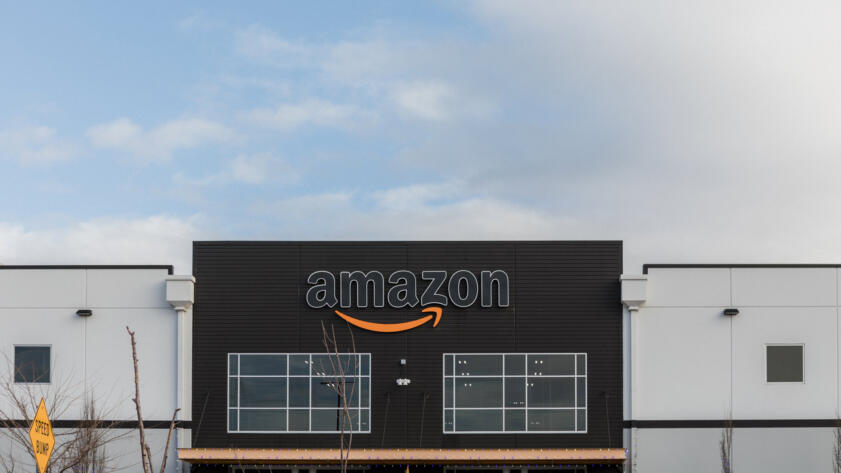The House of Representatives’ antitrust subcommittee on Wednesday accused Amazon of lying to Congress about how it treats third-party sellers, including whether it preferences its own brands and exclusive products in search results, citing an investigation by The Markup.
In a letter sent Wednesday to the Department of Justice, the committee’s members asked the DOJ to investigate Amazon for “potentially criminal” obstruction of Congress.
Among the evidence the committee cited was The Markup’s investigation from October, which found that Amazon placed its own in-house and exclusive products ahead of better-reviewed and higher-selling third-party items in search results on its platform. The committee members assert that Amazon told them that the company doesn’t give its own products a leg up in search results or employ data it has collected from third-party sellers to inform how products sold under its own brands are designed and marketed.

Amazon’s Advantage
Amazon Puts Its Own “Brands” First Above Better-Rated Products
The online giant gives a leg up to hundreds of house brand and exclusive products that most people don’t know are connected to Amazon
The letter is the latest in a multiyear effort by the committee to investigate potentially anticompetitive practices by the e-commerce giant and other large tech platforms.
It was signed by Reps. Jerrold Nadler (D-NY), David Cicilline (D-RI), Ken Buck (R-CO), Pramila Jayapal (D-WA), and Matt Gaetz (R-FL).
“The Committee spent 16 months exercising this fundamental truth-seeking function to uncover facts about competitive conditions in digital markets, and Committee members have since proposed legislation to correct the problems uncovered by that investigation,” the letter said. “Yet throughout this process, Amazon repeatedly endeavored to thwart the Committee’s efforts to uncover the truth about Amazon’s business practices. For this, it must be held accountable.”
Four days after The Markup published its investigation, the same committee sent Amazon a letter asking it to explain how its testimony could be true in light of The Markup’s investigation and an article published the day before by Reuters citing internal Amazon documents about knocking off products in its India marketplace and boosting them in search results. That letter warned Amazon officials that lying to Congress is a crime.
According to Wednesday’s letter, a response by Brian Huseman, Amazon’s vice president for public policy, dated Nov. 1, “did not provide any new information” and said The Markup had conflated search results with “routine product marketing” but failed to address “The Markup article’s allegation that Amazon listed its own products first ‘in the search results grid’ itself through ‘source code [that] identified [those products] as “sponsored”—though that label isn’t shown to the public.’ ”
“Without producing any evidence to the contrary, Amazon has left standing what appear to be false and misleading statements to the Committee. It has refused to turn over business documents or communications that would either corroborate its claims or correct the record,” the letter reads. “As a result, we have no choice but to refer this matter to the Department of Justice to investigate whether Amazon and its executives obstructed Congress in violation of applicable federal law.”
Representatives from the Department of Justice did not respond to a request for comment.
In a statement emailed to The Markup, Amazon pushed back against the legislators’ allegations that its officials lied. “There’s no factual basis for this, as demonstrated in the huge volume of information we’ve provided over several years of good faith cooperation with this investigation,” the email sent by Amazon spokesperson Alex Haurek read.
In a July 2019 hearing during an exchange with Cicilline, Amazon associate general counsel Nate Sutton insisted that the listing of products that come up when a user conducts a search on the company’s e-commerce platform doesn’t favor Amazon’s own brands. “The algorithms are optimized to predict what customers want to buy regardless of the seller,” Sutton said. “We provide the same criteria.”
Amazon also affirmed the neutrality of its product search platform in a set of written responses sent to the committee a few months later, in October 2019. However, The Markup’s investigation, published two years later, analyzed 3,492 popular product queries and found Amazon routinely put products from its own brands first, above competitors’ products with better ratings and more reviews.
Knowing whether a product was an Amazon brand or exclusive was enough to predict if Amazon would place it as the first search result seven out of 10 times. It was a more powerful predictor than a product’s user-reviewed star rankings, the number of user reviews, or four other factors that we analyzed.
In 2020, the committee produced a lengthy report regarding its investigation into anticompetitive practices by Amazon, Facebook (which has since been renamed Meta), Google, and Apple.
“Amazon’s pattern of exploiting sellers, enabled by its market dominance, raises serious competition concerns,” the report reads.
Additional reporting by Leon Yin.





